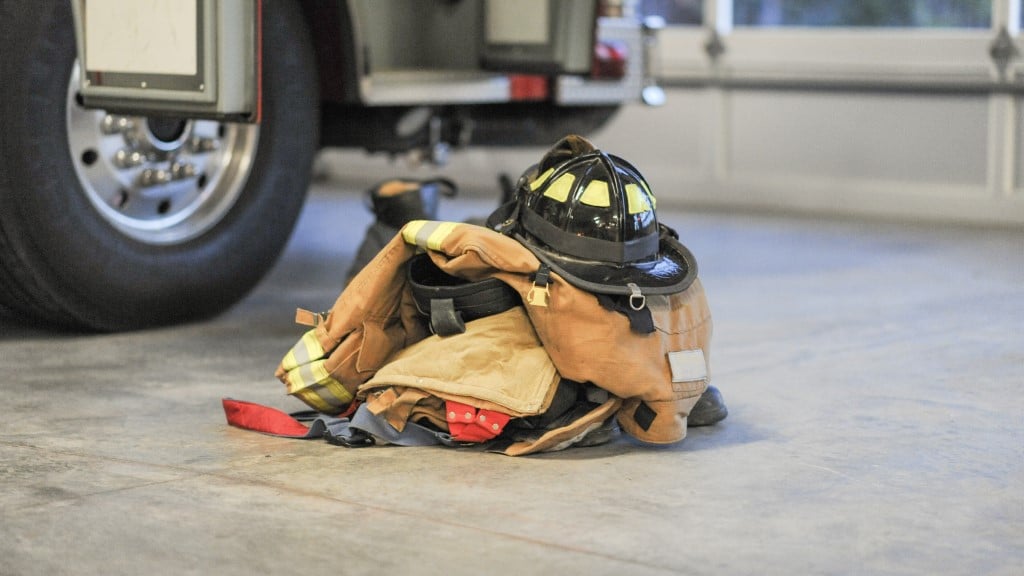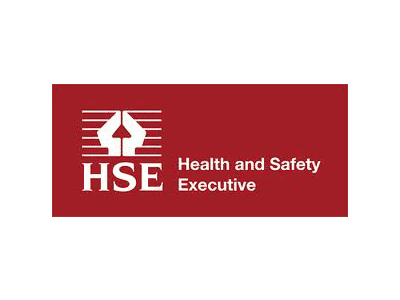May 3, 2022
Prosecutions
Convictions following roofer’s death
Two construction company owners have been convicted of health and safety offences, including one conviction of manslaughter by gross negligence, after a worker fell to his death on a building site in Hove.
Steven Wenham, 48, of Brighton, and John Nicholas Spiller, 52, of Portslade, have been found guilty of several charges at Lewes Crown Court following a long and complex investigation led by Sussex Police, with support from the HSE.
A prosecution had also been brought against two companies of which the pair are directors – Total Contractor’s Ltd and Southern Asphalt Ltd.
It follows an incident at a building site in Brunswick Street West, Hove, on 27 July 2018, in which a roofer subcontracted by Southern Asphalt fell two storeys from a ladder to his death.
An inspection by the HSE found multiple safety failings including no scaffolding or barriers to protect those working at a height.
The victim – 60-year-old Graham Tester – had been using a ladder, secured with only two nails hammered into a timber frame on either side of it.
Wenham was charged with, and found guilty of, manslaughter by gross negligence. Both he and his company Total Contractor’s Ltd were also found guilty of two offences under the Health and Safety at Work Act regarding failure to properly safeguard against serious injury or death from a fall from height.
Spiller was found not guilty of manslaughter but convicted of an offence under the Health and Safety at Work etc Act regarding a failure to properly safeguard against serious injury of death from a fall from height.
His roofing company, Southern Asphalt Ltd, had already pleaded guilty to the same offence. Both men have been released on bail awaiting sentence on 7 June.
Construction Enquirer
April 2022
Construction company fined after building collapse
A Manchester construction company has been fined after much of a three-bedroom domestic property in Stretford collapsed during a loft conversion and ground floor extension work.
Manchester Magistrates’ Court heard that on 4 May 2020, Mughal Construction Limited had been carrying out a loft conversion when it collapsed, causing workers to flee from the site. The building had insufficient temporary supports and workers did not have sufficient skills, knowledge and experience, to carry out the work safely.
The HSE’s investigation found that the company had failed to properly plan, manage, and monitor the work. It had failed to provide adequate health and safety measures to prevent the risk of collapse at the property including sufficient measures to ensure it remained safe and stable.
Mughal Construction Limited of Levenshulme Trading Estate, Printworks Lane, Manchester pleaded guilty of breaching Regulations 13(1) and 19(1) of the Construction (Design and Management) Regulations 2015. The company was fined £30,000 and ordered to pay costs of £3,000.
HSE
April 2022
News
Coronavirus (COVID-19): Safer Workplaces and Public Settings
(Scotland)
This guidance from the Scottish Government has been updated to reflect latest information. The guidance is for businesses and workplaces on reducing the risk of COVID-19 and supporting staff and customers.
On 18 April, the guide was restructured and renamed to take account of latest guidance. It was previously titled “safer businesses and workplaces.” It now includes new sections on ventilation and fair work.
Ventilation
The provision of fresh air into indoor environments is essential to preventing the spread of COVID-19. Further to this, employers must, by law, ensure an adequate supply of fresh air in the workplace.
To improve the supply of fresh air in your workplace and reduce the spread of COVID-19:
- Regularly monitor the air quality within enclosed environments – you may wish to use Non Dispersive Infra-Red (NDIR) CO2 monitors to identify the CO2 levels to help decide if ventilation is poor. For further information, please see the Health and Safety Executive (HSE) guidance.
- Let in as much fresh air as possible – open windows, doors (excluding fire doors), and vents.
- Avoid using ventilation systems which only recycle used air. Make sure that fresh air is introduced to all spaces.
- Be aware of the relevant occupancy level – more people together means more aerosol particles, and needs more ventilation.
- Air rooms between users or regularly throughout the day.
- Where practical, spaces where there is potential for long duration exposure over several hours within the same group (eg offices) should ensure occupants have regular breaks, ideally with purge ventilation/airing of the room, to reduce the potential for viral exposure.
- If ventilation makes it feel cold – consider relaxing uniform or dress code requirements, so employees can continue to work comfortably.
- Understand your building’s ventilation system – do not adjust mechanical settings without expert advice. It is important to make sure that ventilation systems and/or extractor fans are used correctly.
Fair work
Adopt Fair Work practices and a flexible approach to dealing with the impacts of COVID-19, in order to protect the health and wellbeing of your workforce. Central to the Fair Work approach is the expectation that employers, trades unions and workers work together to ensure workers are treated fairly and their concerns are taken seriously.
Employers are encouraged to consult closely with employees (and trade unions where appropriate and applicable) and encourage them to raise questions or points of concern.
The full guidance is available HERE.
Guidance / Reports
Building Safety Bill: Lords amendments
The Building Safety Bill has completed its initial Commons and Lords stages. Amendments made in the House of Lords were considered by the Commons on 20 April 2022. Issued by the House of Commons Library, this briefing covers Lord amendments in Grand Committee, on report and at third reading, prior to this.
Key Lords amendments
The Bill was substantially amended by the House of Lords both in Grand Committee and on report. Peers expressed concern over the lack of an updated impact assessment to help them assess the costs and benefits of the revisions.
Building safety manager removed
Following concerns raised about building safety managers in relation to accountability, competence and costs to leaseholders, the Government amended the Bill to remove the legal requirement for a building safety manager. Instead, the Government said accountable persons should reflect on their current management arrangements, and that Government would continue to work with industry on improving best practice.
Building safety charge
As a consequence of the removal of the building safety manager provisions, the Bill was amended to remove the building safety charge as a separate charging mechanism. The cost of the new safety regime will still be recoverable from leaseholders, but will be accounted for and recovered via service charges.
Paying for remediation work
On 10 January 2022, the Secretary of State for Levelling Up, Housing and Communities, Michael Gove, announced a revised approach to dealing with building safety for residential buildings between 11 and 18 metres. Instead of a loan scheme, developers of these buildings are expected to meet the cost of cladding remediation work. In the absence of developers’ agreement, the Government will use the levy on building control applications to raise the necessary funding.
On 13 April 2022, the Government said they had “agreed a solution with the housing industry that will see developers commit a minimum of £2 billion to fix their own buildings.” There’s an expectation that a further £3 billion will be raised through the Building Safety Levy over ten years.
In Grand Committee and on report, extensive Government amendments were agreed to which provide the legislative basis for securing contributions from developers and providing more protection for leaseholders in affected blocks.
During debates on the Bill, the Government’s approach has been described as a “waterfall” or “cascade” of responsibility, each stage of which must be exhausted before responsibility passes on.
The Government amendments were welcomed, but peers questioned the degree to which they would deliver on Michael Gove’s commitments of 10 January 2022. On report, non-Government amendments were agreed to:
- Extend cost protections to leaseholders living in affected blocks of all heights.
- Extend protections to leaseholders who have exercised the right of collective enfranchisement.
- Provide that leaseholders are not liable to pay for fire safety remediation work.
At third reading in the Lords, Lord Young of Cookham and others expressed the hope that these amendments would not be overturned in the House of Commons. Attention was also drawn to “unfinished business”, including:
- responsibility for remediating “orphaned buildings” (where there is no developer and the freeholder and leaseholders cannot afford the work); and
- “the definition of a qualifying lease and its failure to protect those receiving a state pension who rely on rental income from a lease to sustain themselves.”
Consideration of Lords amendments
When a Bill has passed through third reading in both Houses it is returned to the first House (where it started) for any amendments made by the second House to be considered. The House of Commons were set to consider the Lords Amendments on 20 April 2022.
If the Commons makes amendments to the Bill, the Lords must consider them and either agree or disagree to the amendments or make alternative proposals.
If the Lords disagrees with any Commons amendments, or makes alternative proposals, then the Bill is sent back to the Commons.
A Bill may go back and forth between each House until both Houses reach agreement on the exact wording of the Bill – this is known as ‘ping pong’.
When the exact wording has been agreed by the Commons and the Lords, the Bill is ready for Royal Assent.
House of Commons Library
April 2022
Set 40-year deadline for non-domestic building asbestos removal, MPs say
The Government must commit to a strategy to remove all asbestos from public and commercial buildings within 40 years, MPs have said, with the risk to health only likely to increase as buildings are adapted with the move to net zero.
The report from the Work and Pensions Committee highlights how despite being banned more than two decades ago, asbestos persists as the single greatest cause of work-related fatalities in the UK. There were more than 5,000 deaths in 2019, including from cancers such as mesothelioma.
According to the Committee:
- Asbestos-related illness is ‘one of the great workplace tragedies of modern times’ with thousands of deaths each year from past exposures.
- An increase in retrofitting in response to net zero ambitions means that more asbestos-containing materials will be disturbed in coming decades – a cross-government approach is needed.
- More funding is needed for the HSE to boost enforcement activity.
Many of these deaths will relate to exposures from 35 or more years ago. The available evidence indicates that cumulative exposures are much lower now for younger age groups but more data is needed to understand the current picture.
With asbestos still in around 300,000 non-domestic buildings and a likely dramatic increase in disturbance from net zero retrofitting, the Committee says that reliance on the current asbestos regulations will not be good enough. It concludes that a cross-government and ‘system-wide’ strategy for the long-term removal of asbestos is needed.
The report calls for the Government and the HSE to back up their stated goal of removing all asbestos by committing to a clear time frame and strategy. The plan should strengthen the evidence base on safe and effective asbestos removal in the first instance before prioritising removal from the highest risk settings, including schools.
The Government must also ensure adequate funding for HSE’s inspection and enforcement of the current asbestos regulations, which has declined in recent years.
Main findings and recommendations
The asbestos risk today
While there is evidence that the extreme exposures of the 20th century are behind us, HSE is not doing enough to assess current levels of risk in non-domestic buildings. The Committee heard accounts of recent exposures in the workplace and beyond. HSE should adopt a more structured approach to collecting data on current exposure levels.
A strategic approach to asbestos management
The HSE has been slow to invest in research into the costs and benefits of removal, and to evaluate options for its safe removal.
A deadline should now be set for the removal of asbestos from non-domestic buildings within 40 years. A new strategic plan should focus on the highest risk asbestos first and the highest risk settings including schools.
This plan should, in the first instance, commit to improving urgently the evidence around safer asbestos removal and disposal, considering relative costs and benefits.
HSE’s enforcement and campaigning
The HSE issued 60% fewer asbestos enforcement notices annually between 2011/12 and 2018/19. The scale of decline is remarkable when compared with HSE’s enforcement activity overall, despite no specific and compelling evidence that compliance with the asbestos regulations has improved dramatically during this time.
HSE should commit to a sustained increase in inspection and enforcement activity. The Committee repeats its recommendation from June 2020, that the Government should ensure adequate funding for this increased programme of work.
UK Parliament
April 2022
Mental Health in the Workplace
Mental health issues are a major cause of long-term absence from work. Employers should promote good mental health and provide support for employees who are experiencing mental ill health including anxiety or depression.
This CIPD factsheet gives an overview of mental health issues in the workplace. It provides guidance on supporting employees’ mental health at work, including spotting early signs of mental ill health and training line managers. It emphasises the importance of making helpful adjustments at work and offers guidance on providing specialist help for employees who need it.
The COVID-19 pandemic has raised serious concerns about people’s mental wellbeing. The ongoing uncertainty continues to test many people’s resilience, and many are still dealing with new job demands and personal challenges because of the pandemic. Since the onset of COVID, more organisations are stepping up their efforts to foster mentally healthy workplaces with wellbeing activity is increasingly focused on mental health.
Employers should ensure they have an effective framework in place to support people’s mental health, and offer sources of help such as counselling, an employee assistance programme and occupational health services where possible. They need to ensure line managers in particular have the ongoing guidance needed to support their teams, so they can have supportive and empathetic conversations with individuals and make work adjustments where needed. All employees should be encouraged to have a good self-care routine including a healthy approach to diet, relaxation and sleep.
Discrimination against those with mental health issues remains a problem in workplaces, even though a significant proportion of the workforce will face poor mental health during their working life.
In Great Britain, disability discrimination provisions in the Equality Act 2010 encompass many mental illnesses which can legally be classed as a disability. A range of conditions may qualify a person for protection under the Act providing there is a substantial and long-term effect (for at least a year) on their ability to carry out normal day-to-day tasks. Mental impairments do not need to be clinically well-recognised to qualify as a disability.
If an employee has a disability, their organisation has a responsibility to make reasonable adjustments to accommodate their needs – this includes those with mental health conditions.
Please click HERE for the full document:
CIPD
April 2022
Contact
At William Martin we have a nationwide team of experts who offer a comprehensive range of health and safety compliance services. As part of the wider Marlowe Group, William Martin also has access to a wider range of complementary compliance services.
For all enquiries, please contact us or call our team on 0203 819 8829.





